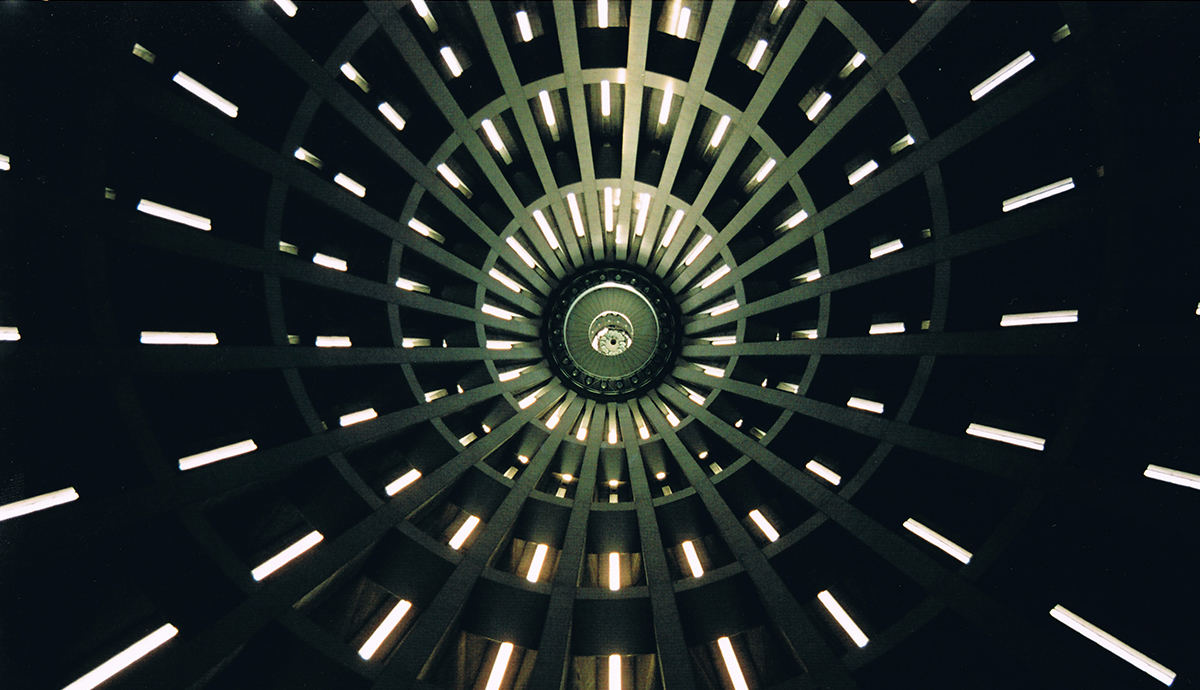Door to Another World: about “Rutabaga” from 297.2
I'm a very, very slow writer. I am glacial. I move at the pace of lakes "making" ice. I don't write every day. I don't even write every week. I definitely don't do a poem a day in April. I hate free-writes. I don't dislike, but am wary of, prompts. I never attend workshops where I need to produce new work overnight or in class. I'm not a poet who gets "an idea" for a poem—a phrase will come into my head and I'll walk around with it for weeks until I'm finally compelled to put it down on paper and begin the journey toward a poem.
So, when my poetry group collectively decided they wanted to do 10-minute free-writes at the beginning of each group session, I balked, protested, and, finally, gave in, certain that nothing would come of it for me, that I could just use the time to mull over my day.
One night the poet who hosted our group put a big, clumsy rutabaga in the middle of our circle of chairs and said, "Here's our prompt." Really? I stared at that rutabaga for what seemed like an eternity. Then I started writing, just describing the look of the vegetable and pretty soon the 10 minutes were up. It wasn't until at least a week or two later that I pulled out what I'd written and stared at my description of that homely vegetable for what seemed yet again like an eternity.
When I was a child, my grandmother used to make what she called mashed turnips. I hated them. They had the consistency of baby food, the color of pumpkins, and tasted awful. Along with wonderful other foods like paczki and fried dumplings and potato pancakes, they were a staple in my German-Russian household, but I could not eat them. Only now do I realize they probably weren't turnips at all, but rutabaga, a very common confusion—turnips are smaller, have a smooth skin, and have white flesh.
That's when the phrase "In my hand, this hoary root, door/to another world" came into my head and wouldn't let go of me. When I finally sat down to write after carrying that phrase around for another few weeks, I just let the language morph from pure description to association and it spiraled into the poem. The vegetable and my childhood memory of mashed turnips took me even further back. It took me to my "roots." The knobby, rough rutabaga became a symbol for my ancestry, for the "dig-down" and "old-gold light" I found. There is something very satisfying about claiming one's past, who and what we came from.
It's a dense, language-rich poem, and I think it needs to be, given the subject. Our ancestries are dense and rich. It's also a poem that uses some archaic phrasing such as "scried in a smooth shew stone," which means to practice crystal gazing, to look into a translucent ball (or show stone—"shew" is an archaic spelling of "show") for purposes of divination or fortune-telling. It's a poem that needed the feel of an earlier time. And, of course, there was no other possible title.
Ultimately, I felt great joy when I finished this poem. It was a gift. It seemed to be all of a piece—nothing more, nothing less was needed. I quickly submitted it to North American Review for the 2012 James Hearst Poetry Prize and it was a finalist. I'm very aware of how rare it is to have a piece accepted for publication the first time you send it out, and how even more rare it is for it to place in a contest on its first submission. I will never again resist prompts and free-writes, even though I'm still not good at them. I've since written three poems that came from our group free-writes. They open hidden rooms inside us, bring gifts we never imagined, sometimes in a "cracked sack of turnip-light."
Susan Elbe is the author of The Map of What Happened, winner of the 2012 Backwaters Press Prize and the Jacar Press 2014 Julie Suk prize for the best book of poetry published by an independent press in 2013. She has one other full-length collection, Eden in the Rearview Mirror (Word Poetry), as well as two chapbooks, Where Good Swimmers Drown, winner of the 2011 Concrete Wolf Press Chapbook Prize, and Light Made from Nothing (Parallel Press). Her poems have appeared or are forthcoming in many literary journals, including Blackbird, Diode, North American Review, Prairie Schooner, and online at Verse Daily. Susan currently curates the Bridge Poetry Series with three other poets in collaboration with the Chazen Museum of Art in Madison Wisconsin. You can learn more about her at www.susanelbe.com. Susan Elbe has been published many times in North American Review, most recently in issue 297.2 with her poem, "Rutabega."
Justin Perkins is North American Review's featured artist in today’s post. Perkins was featured in issue 298.4 of North American Review. Justin graduated from College for Creative Studies. A freelance illustrator and designer, he teaches art in Detroit.


